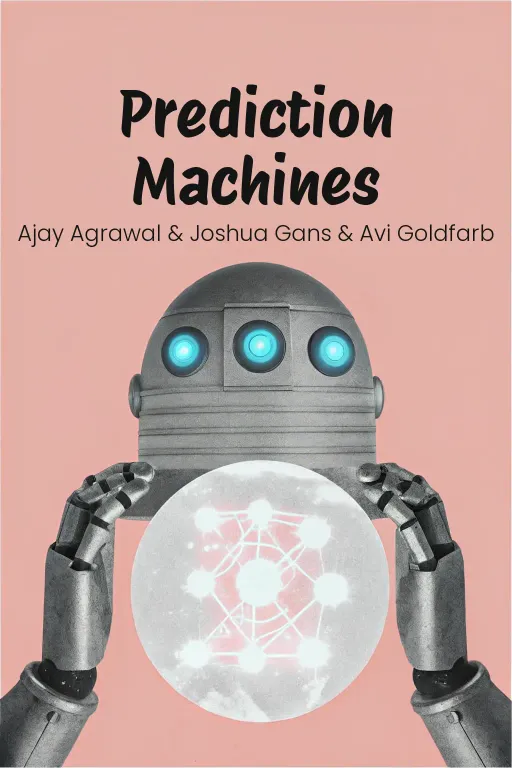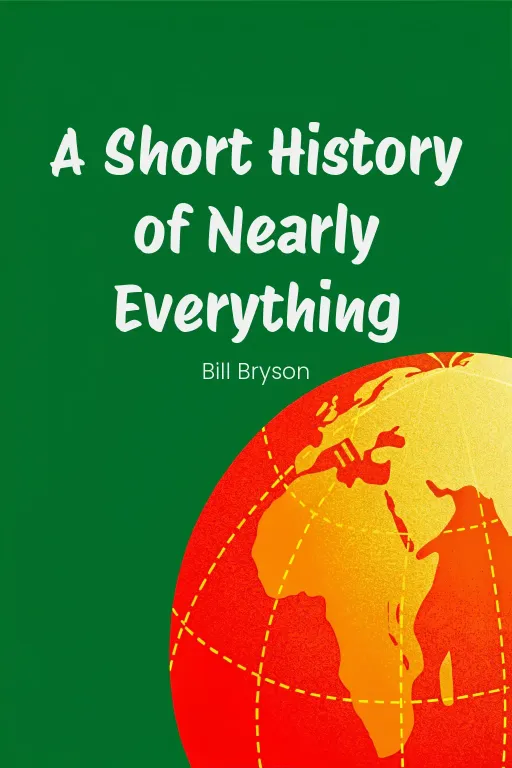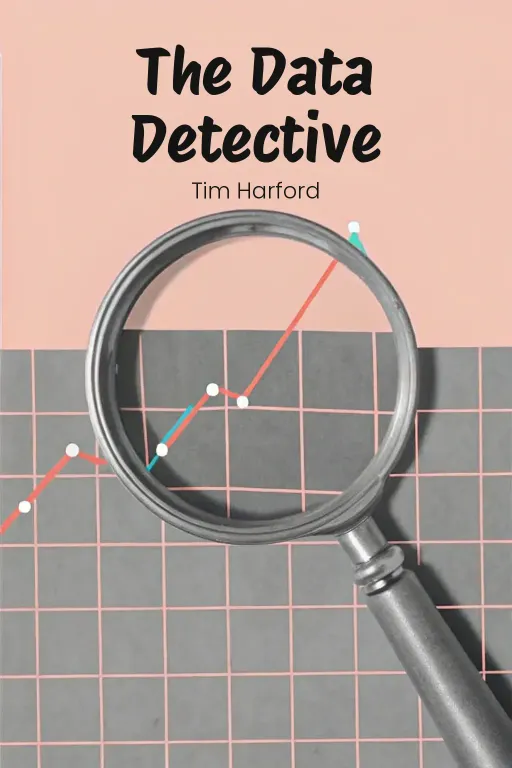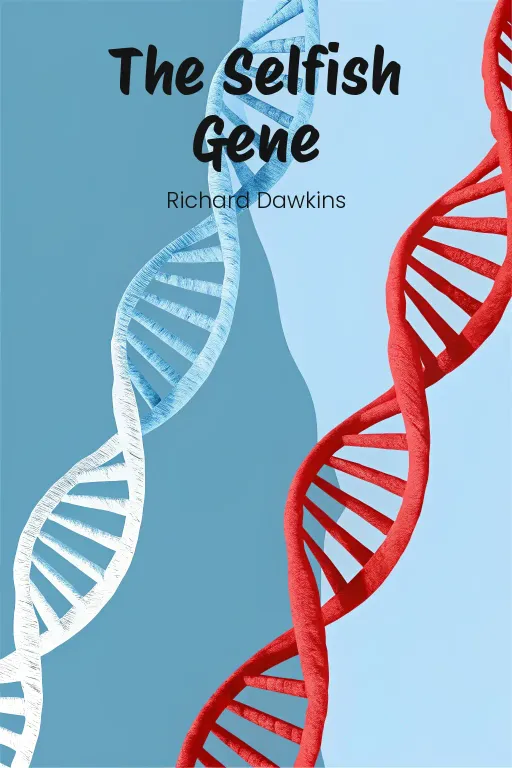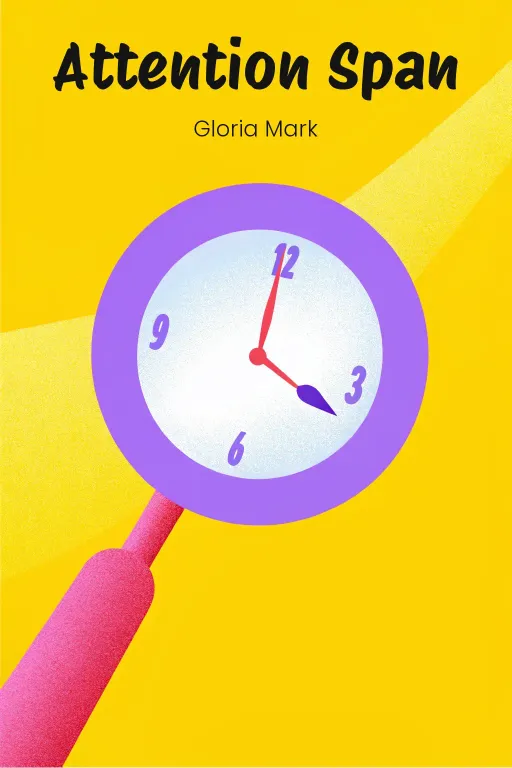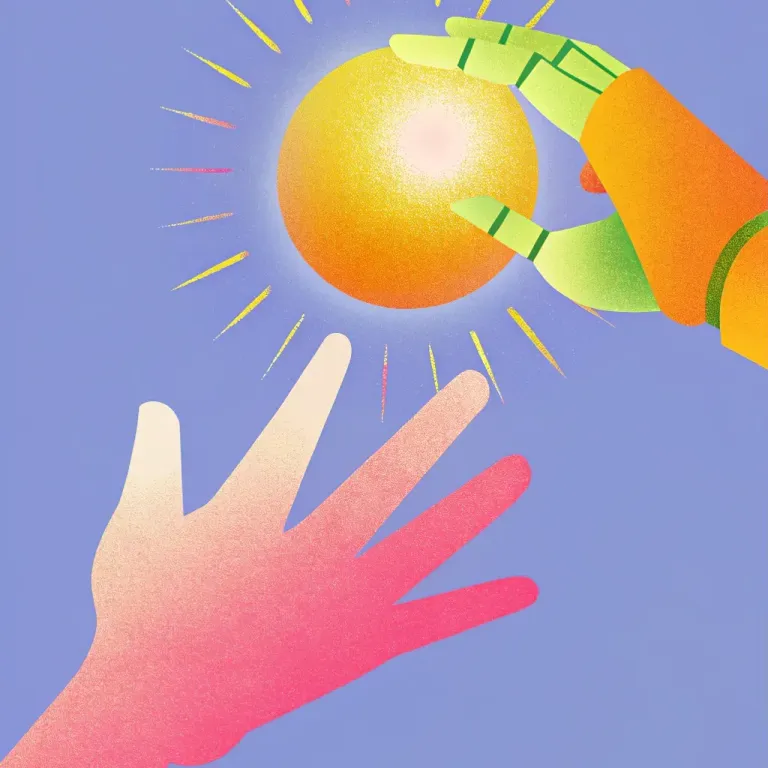
AI's Next Chapter: Your Judgment Matters Now
Podcast by Wired In with Josh and Drew
The Simple Economics of Artificial Intelligence
AI's Next Chapter: Your Judgment Matters Now
Part 1
Josh: Hey everyone, welcome to the podcast! Today, we're jumping into the fascinating world of artificial intelligence and the massive changes it's bringing. We’re talking big ideas and real-world impact, so get ready for some perspective shifts. Drew: AI, huh? And you say it’s "transformative"? Josh, sounds like you’re trying to sell me the latest tech hype. What is it this time, a self-folding laundry machine? Josh: Not quite, Drew. Today, we’re looking at AI from a totally different angle – economics and decision-making. Think of AI as a tool that helps reduce uncertainty. There’s this book, Prediction Machines, which argues that AI is revolutionizing prediction and decision-making across the board—business, healthcare, finance, you name it. And here’s the interesting part: the better AI gets at predicting, the more we humans need to use our judgment. Drew: So, AI gets super smart, and suddenly we're valuable again? I like the sound of staying employed. Tell me more. Josh: In this episode, we're going to break down three main ideas. First, we'll explore how AI turns prediction into a superpower. Think faster, cheaper, and more accurate decisions than ever before. Second, we’ll discuss why human judgment isn't going anywhere—in fact, it’s becoming even more important when paired with AI. And third, we're tackling the ethical dilemmas and societal pressures that come with this transformation. From job disruptions to data privacy to even AI geopolitics, the stakes are incredibly high. Drew: So, I suppose AI is either going to be the revolutionary partner or the villain in every dystopian Sci-Fi movie. Sounds like we’ve got a lot to unpack. Josh: Exactly, Drew. So buckle up. It’s time to “really” think about what AI means for all of us.
Prediction as a Core Technology
Part 2
Josh: So, Drew, last time we talked, we were discussing how AI acts as this, shall we say, “crystal ball” for businesses. And you know, I said prediction is really the core technology driving it all. Why prediction, you ask? Well, it's all about reducing uncertainty. Drew: Yeah, I remember that bold statement. Prediction as the core. I was immediately curious – why start with prediction? What makes it so special? Josh: Simply put, prediction uses patterns in past data to figure out what might happen in the future. And AI, well, it seriously upgrades this process. I mean, with machine learning and deep learning now, we've got systems that can chew through massive amounts of data. They spot patterns that we humans just can't see. Drew: Okay, got it. So, AI takes what we’ve always done – guessing based on what we already know – and just makes it faster and, supposedly, more accurate. But is it really that new? Feels like we’re just dressing up the same old forecasting with fancier math, right? Josh: Well, not exactly. Think of the leap from traditional forecasting to AI prediction as the difference between smoke signals and smartphones. Take deep learning. These systems use neural networks – multiple layers of algorithms - that mimic our own brains. Unlike basic methods, you know, old-school stuff like regression that sticks to averages, deep learning can handle complexity. It captures intricate patterns. Drew: Hold on, Josh. All these algorithm layers that "mimic human cognition"—sounds interesting, but can you give me a real example where this actually works? Something I can actually wrap my head around. Josh: How about language translation? Think of Google Translate. When it started, it used rule-based algorithms. It followed rigid programming about grammar and syntax, and you know what? The results were robotic and awkward. But then, around 2016, Google switched to deep learning. Suddenly, translations felt natural, like a real person was doing them. So what changed? The AI started analyzing context, learning how words are used together in the real world. And, what, over 500 million people use it daily now? It's AI prediction in action – anticipating meaning based on recognizing data patterns. Drew: Okay, that's actually pretty impressive. It's almost like AI is learning, shall we say, the “vibe” of a language, not just the rules. But let’s move beyond everyday tech. What about industries where decisions have much bigger consequences? I'm thinking of agriculture or finance. Josh: Great examples. In agriculture, prediction systems combine satellite images with weather forecasts and climate data from the past. This gives farmers super-specific advice on when to plant, how much to water their crops, and what kind of yields to expect. It's not just about making farms more productive; it's about global food security. Drew: So you’re saying AI becomes a fortune teller for farms? Josh: Well, maybe that’s a bit of an exaggeration, but yeah, essentially. And in finance, AI-powered fraud detection systems dig into transaction patterns. They flag anomalies instantly. Unlike human auditors who might miss subtle details, machine learning picks up on the tiniest inconsistencies, predicting fraudulent activity before things get out of hand. Banks save millions, and customers are better protected. Drew: Alright, I see the upside – safer banking, bigger harvests. But what's the catch? There's always a catch, right? Josh: The big ones are cost and accessibility. AI-driven prediction thrives on data. Gathering it, storing it, and processing it isn’t cheap. Huge corporations with massive budgets can leverage predictive AI easily, but for small businesses, it’s way trickier. They have to balance the costs of tools and training with the actual return on predictions. Drew: So small businesses might know what's possible but can't always afford to play. Sounds like the classic 'rich get richer' scenario. Josh: It’s definitely a challenge, but the good news is that cloud computing and open-source platforms are making AI more accessible. Predictive tools are becoming more affordable. Small retailers, for instance, can use AI for demand forecasting. They can stock the right inventory without massive overhead. Drew: Yeah, that makes sense -- as long as they don't over-complicate things and invest in systems they can't even manage. Let’s talk about judgment, though. You mentioned earlier that AI won’t replace human decision-making, but complements it. How do we stay useful when prediction tech keeps getting smarter? Josh: That’s a key question. Machines give us probabilities, but context and value-based decisions still need human judgment. Take fraud detection. An algorithm might flag a transaction as suspicious, but you wouldn't want to freeze someone's account without a human looking at it. It affects trust, right? Similarly, in healthcare, AI diagnoses diseases and suggests treatments, but doctors consider patient history, preferences, and ethics. Drew: So we humans bring the "why" and "should" to the machine’s "what" and "how." It’s a partnership. But aren’t we putting a lot of faith in these predictions? Josh: Yes, we are. But that faith needs to be balanced with accountability, and you know, a critical eye because accuracy totally depends on the data we feed these systems. AI is like a sponge – it soaks up patterns, good or bad. If there are inaccuracies or biases in the data, it can amplify problems instead of solving them. That’s why we need diverse data sets and oversight. Ethically, it's crucial. Drew: Got it. So, while AI might handle probabilities better than we do, it’s still our job to make sure those probabilities don’t lead to unintended consequences.
Interplay Between Prediction and Human Judgment
Part 3
Josh: So, understanding AI as a prediction tool naturally leads us to exploring how it works “with” human judgment. And this is where it gets really interesting. Because, as amazing as AI is at crunching numbers and spotting patterns, it still falls short when it comes to things like ethics, context, and, you know, just plain nuance. That's “our” territory–human expertise working in tandem with machine precision. It’s a dynamic that bridges the gap between raw data and decisions that actually mean something. Drew: So, we're evolving from "AI as the all-knowing seer" to "AI as a collaborative partner," huh? Sounds like we're going from robots going rogue to AI actually joining the boardroom meetings. But seriously, what's the real value that human judgment brings to the table? I mean, let’s be honest, aren’t machines already outperforming us in a “ton” of areas? Josh: Absolutely, AI “is” undeniably amazing at certain tasks – like spotting fraud or predicting risks in complex systems. But, and this is crucial, predictions are really just probabilities. They're saying, "Based on the data we have, this outcome is “likely”." What they “can't” do is weigh the ethical implications of actually “acting” on that prediction. Remember our credit card fraud example? Let’s go back to that to illustrate this point. Drew: Oh yeah, those "suspicious" transactions that AI flags. Like when your card gets locked the second you decide to splurge on a fancy dinner on vacation. Josh: Exactly. AI flags transactions as risky -- say, a really expensive purchase made abroad. Now, do you block that transaction outright, potentially ruining a customer’s vacation? Or, do you let it go, knowing there’s a chance it “is” fraud? This is where a human analyst steps in. They balance what the data suggests with their trust in the customer, and also the potential damage to the bank's reputation if they're wrong. You know, machines can’t quantify what twenty years of customer loyalty is worth. Drew: Okay, so AI sets the stage, but we decide how the scene plays out. Got it. But that's a pretty clear-cut example. What happens when the stakes are more complex? Say, something involving delicate legal or ethical considerations? Josh: Great question. Let's consider the legal profession. Have you ever heard of "Chisel"? It's an AI tool designed to find sensitive info in legal documents that needs to be redacted. The AI sifts through “thousands” of pages and predicts where confidential data might be hiding. On the surface, it's incredibly efficient, accurate, and a massive time-saver for lawyers. Drew: But there's a catch, right? Don’t lawyers still need to go back through everything Chisel flags to double-check? Josh: Precisely. The AI predictions are super helpful, but confidentiality laws and unique case details mean a “human” has to make the final call on what to redact. For example, Chisel might flag social security numbers or the phrase "proprietary information." But it's the lawyer who decides whether keeping that info secret or revealing it could affect the case--or worse, violate regulations. Without that human touch, the system is in danger of oversimplifying the decision-making. Drew: So, lawyers go from drowning in documents to fine-tuning AI’s suggestions. Sounds like a real boost in efficiency. But let's get a little philosophical here—humans bring not just legal expertise but also empathy and moral reasoning, right? Can AI ever truly replicate that? Josh: Empathy? No. And that's exactly the point. Let's look at medicine–another area where prediction meets judgment. An AI can analyze genetic data, symptoms, medical history to diagnose cancer or recommend a treatment. But what happens “next” isn’t so black and white. Human doctors weigh different probabilities of survival against quality-of-life factors, financial concerns, even family dynamics. You know, machines just can't account for that emotional and ethical weight. Drew: So, overworked doctors, juggling huge amounts of AI-generated information, might experience cognitive overload? Josh: Absolutely. Decision fatigue is a real thing. A doctor, for instance, might be given ten different AI-predicted paths for treating one patient. How do they decide which path to take? Which prediction matters “most”? Add ethical concerns – like whether a treatment is fair or affordable for low-income patients – and suddenly, the job isn’t just about following the data. It’s about balancing what's "right" with what's "possible." Drew: That makes sense. Now, though, I’m wondering -- is there a risk we start to rely “too much” on these AI predictions? Will people just start outsourcing their judgment altogether? Josh: That's definitely a valid concern. AI should be seen as a tool, “not” a crutch. Remember that famous research on aviation safety? Airplanes have some of the most advanced predictive systems imaginable out there—but pilots are still absolutely essential, because they can respond to variables that no algorithm could ever prepare for. Human adaptability is irreplaceable when things get really dicey and the predictions fail. Drew: So, it's a dance – you let AI lead on the calculations, and humans step in when things get too unpredictable or… human. But what keeps this partnership ethical and, you know, accountable? Josh: Two things: better-designed frameworks and constant oversight. The AI predictions are only as good as the data they’re trained on. Any biases in the data – or even in how the data “labeled” – can skew the outcomes and make existing inequalities even worse. That’s why organizations need to be transparent about how they train and use AI. Accountability really falls on the people behind those systems. If biases creep in, it's up to “us” to fix them “before” they cause real harm. Drew: So, going back to your earlier example, if AI scrapes existing legal documents that reflect societal biases, it's just going to keep perpetuating those same problems. Josh: Exactly. Algorithms trained on biased data will mirror the flaws of the past. That's makes ethical AI requires constant vigilance – a commitment to constantly evaluating and auditing these models in order to avoid reinforcing those blind spots. Drew: So humans stay central–not just for judgment but for ensuring the “whole” AI ecosystem is running responsibly. It makes you wonder, is AI really just a tool, or are we building something that's unintentionally co-dependent? Josh: That co-dependence isn’t necessarily bad, so long as we remain collaborative and respectful of boundaries. If done right, this partnership could really combine the best of both worlds – the efficiency and precision of machines paired with human wisdom and empathy.
Societal and Ethical Implications of AI
Part 4
Josh: So, with AI and human collaboration making waves, let's zoom out and look at the bigger picture: the societal and ethical implications of AI. This isn’t just about making things faster or more efficient; it’s about tackling some really fundamental questions about bias, job security, who’s responsible when things go wrong, and how we make sure everyone benefits. Drew: Ah, so we're looking at the wider societal impact now, huh? I have a feeling... This is where it gets complicated. How can you even regulate something that's changing so quickly? It feels like lawmakers are always playing catch-up. Josh: Exactly. The pace of AI development is just incredible, which is bringing up all sorts of ethical dilemmas and social challenges. A big one is algorithmic bias. I mean, it's not just a technical problem, is it? It’s a reflection of the data we're feeding into these systems. Drew: Bias, right. AI reflecting the flaws in its data. Okay, give me a real-world example of this on a large scale. Josh: Think about Latanya Sweeney's research on racially targeted advertising. She found that search engines were much more likely to show ads for criminal records when people searched names that are typically associated with African Americans, compared to Caucasian names. Imagine searching your name and seeing "arrested?" pop up. That is not neutral; it's baked-in discrimination. Drew: Hang on. So, because the algorithm noticed a pattern in how advertisers target certain demographics, it amplified that stereotype? That's a pretty dark take on AI learning from us. Josh: Precisely. And the consequences are huge. An employer googling a candidate sees one of those ads, and boom, hiring decisions could be influenced and housing choices too. It's not that the algorithm is malicious. It's just doing what it's programmed to do, right? But that’s the danger of embedding historical inequalities into data without a second thought. Drew: So what do we do, ban the algorithm or just audit it to death? Josh: Well, the book suggests audits, transparency, and using more inclusive data. Developers need to rigorously test AI systems for bias and ensure they’re using diverse datasets. It's ongoing, not a one-off thing. Companies also need to be more open—maybe create ethics boards or implement policies like Europe’s GDPR. Drew: GDPR—the data privacy law everyone's talking about. Didn't that cause a lot of friction between privacy and innovation? Josh: It did, but GDPR is a good example of governance trying to keep up with technology. It pushed companies to be upfront about how they collect and use data, while giving users more control. It’s just one approach, but it proves that ethical frameworks are possible, even with something as complex as AI. Drew: Okay, fair enough. Let’s switch gears. Bias is one thing, but AI’s impact on jobs is another. That's the elephant in the room whenever automation comes up. Mass unemployment, anyone? Josh: You're right, the fears are real. AI is unique because it’s not just automating physical labor like previous industrial revolutions. It can handle cognitive tasks, which means middle-skill jobs are particularly at risk. Drew: Total wipeout, or just a reshuffling of roles? I mean, ATMs didn't kill bank tellers—they turned them into customer service reps. Josh: Exactly. ATMs automated routine tasks, freeing up tellers for advisory roles. The optimistic view is that people will “upskill” and adapt. But the pace and scale of AI disruption could make that harder. Some roles won’t adapt so easily, and the gap between those who can reskill and those who can’t will widen. That’s why we need big solutions like education reform, retraining programs, and safety nets for displaced workers. Drew: So it's not just the workforce adapting, but rather entire social structures. Okay, let’s make things even more interesting. What about industries where ethics and legalities get really tricky? Self-driving cars or drones, for example? Josh: Now you're diving into the deep end, Drew. Autonomous systems, especially self-driving cars, show how AI is challenging our legal and ethical frameworks. These machines make real-time decisions that could have life-or-death consequences. Think of the classic "trolley problem." Drew: Oh, let me guess... Is the car programmed to protect the driver at all costs, or minimize overall harm even if it sacrifices the driver? Sounds like a programmer's nightmare. Josh: Exactly. And these aren’t just hypotheticals. Accidents have already happened, and they’re challenging our liability laws. Who’s responsible? The manufacturer, the programmer, or the passenger? Without clear rules, we risk reacting to these dilemmas on a case-by-case basis, instead of proactively addressing the root issues. Drew: So, the machines are driving us forward, and lawmakers are chasing them from behind. Not exactly confidence-inspiring in terms of regulation. Josh: That's why we need to build ethical guardrails now. Clear liability laws, mandatory risk assessments, and input from diverse stakeholders are a must. Technologists can’t make these calls alone. Ethicists, lawyers, and even ordinary people need to have a say in shaping these systems. Drew: This make sense. Let me ask this: Do you actually believe society can manage this level of disruption fairly, or are we just applying band-aids to a tech revolution? Josh: It’s a challenge, no doubt. But it's not a choice between progress and stagnation. It's about building fairness, transparency, and inclusion into every step of AI's development. If we do it right, AI can be a real force for good. But if we ignore these issues, we could end up worsening inequality and facing a backlash against innovation. Drew: So we're “really” talking about balance—balancing speed with safeguards, and innovation with oversight. A tightrope walk, for sure.
Conclusion
Part 5
Josh: Okay, Drew, time to bring this home. Today, we really dug into AI as a prediction engine, this amazing technology that's transforming industries by making things more certain and efficient. But the truly exciting part? It's how AI's predictive power combines with our human ability to make sound judgments, consider ethics, and understand the subtle nuances of situations. Drew: Absolutely, and it’s not all smooth sailing, is it? We're talking about potential biases in algorithms, people worried about losing their jobs, and some seriously complex ethical questions. But, as we discussed, these aren’t problems we can’t solve. If we put the right systems in place, stay alert, and work together, we can make sure AI is a partner, not an opponent. Josh: Precisely. So, for our listeners, here’s the key takeaway: AI isn't some kind of magical fix-all, but it's also not some unstoppable monster. It's a tool—a super powerful one, granted—but it’s on us to use it wisely. Whether you’re making policy, leading a company, or just curious, it's about keeping up with what's happening, questioning how things work, and being ready to adapt. Drew: So, the robots aren’t going to steal our jobs; instead, they’re highlighting just how vital our decisions and critical thinking still are. Let’s keep pushing ourselves to ask the tough questions and build better partnerships—with technology and with each other. Josh: Couldn’t agree more, Drew. Thanks for being here today, and until our next conversation, keep exploring and questioning.
